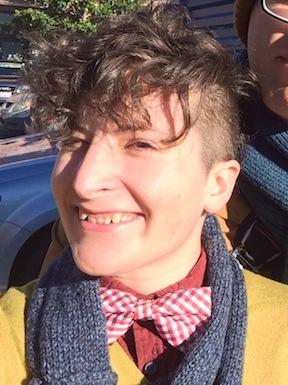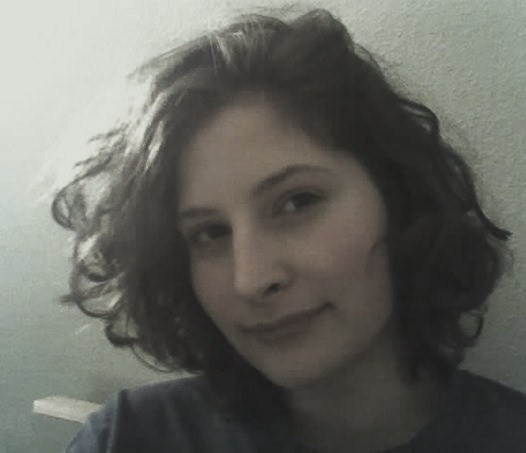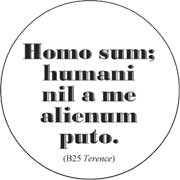Yesterday I posted and open letter to loved ones who intentionally misgender me. This post is a kind of sequel to that post. This post is for people who read that letter and want to know more about my transition. And it's going to be all about me and how good I look. So buckle up as I use the following photos to demonstrate how I feel and probably appear much more authentic than I have in the past.
Now this may initially seem like a clean cut portrait of triumph. But it's not some simplified escape or easy liberation narrative. I'm not here to invalidate the person I was 5 years ago. Just because I feel wiser and feel more myself today doesn't mean I actually am. There are inauthentic photographs of me now and surely there were photographs and undocumented moments of authentic joy in my past. My pre-transition life was not complete misery and my life today is by no means free from discomfort. But what I most want to highlight here is the fact that the bulk to the selfies I take today are much more reliably expressive and forthcoming than photos I've taken of myself in the past.
I don't necessarily think I look better in these newer pictures. And actually I acknowledge that the way I look now deviates much more from common standards of beauty/attractiveness in my culture. I'm fully aware that I was “prettier” then and that prettiness fits easily onto my frame. But ease doesn't make a thing right. The contrast I see every time I look at these photos has little to nothing to do with physical beauty.
For instance this person might be called handsome but probably not beautiful:
You can see more of the person I am in the the more current shots. In older photographs of me I see a shrinking. I see myself hiding my features I see a sort of failed demure-ness that I barely recognize as ever being part of myself. I remember seeing photos of myself back in 2006 and deleting all the candid shots I could find because they didn't conform to the kind of pretty I was trying so hard to project. I remember comparing candid and posed shots of myself and thinking and thinking, “You look pretty good when you're trying.”
One of the most prominent differences that I physically remember is that while being photographed I never allowed my crooked and yellow smile to be preserved on film. Sure I would smile and laugh big a lot but when the camera was about to click I'd tell myself to “tone it down.” So it's a bit of a lie to say physical beauty has nothing to do with this contrast, because I did a great deal of work in acting out what I thought was beauty. I approached putting on femininity was like it was my job. And I absolutely knew what customers would like. Like most people at the close of their 20s, I've climbed through a world nauseatingly full of suggestions on how to best express myself.
It's taken something like 10 years, but I've finally become more comfortable and somewhat skilled at living in my body and using it to express myself honestly. In pictures today I am more playful, unafraid of taking shots that don't conform to what's been decided as my “good angles”. In the only playful pictures I could find of my early twenties self, I'm either drunk, completely unaware a photo was being taken, or there was a person I trusted very deeply behind the camera.
This is the sort of photo I usually took of myself:
The person in the above photo and more current pics is noticeably less concerned with how others might perceive them. In some sense taking selfies is a ritual for me. Getting to see myself distracts me from what others might think. It's important that I make it a ritual because I can't quiet the constant anxious mutterings of disapproval in the background of my subconscious that pressure me to pay attention to what others think of me. Before transition I barely ever noticed that voice was wrong. It was a fixation that drove me without even asking. One that, if I'm not being vigilant, will seep back into my habits and put its ghostly thumb on the scale of my decisions.
Even now as I write this I can feel it telling me that people who read this will think I am shallow, vain, vulgar, and wrong and so of course shouldn't be writing this piece, not in public at the very least. The voice only speaks in run on sentence. And sometimes I am too tired or anxious about other things to ignore it. If someone happens to snap a photo in one of these disquiet moments I can feel myself diverting. I can feel the false demure creeping back in. I hear Tyra Banks telling me to “smize,” I strain to hold my face in a blank sort of positive. The results, while not completely dishonest seem completely vacant.
When these moments of anxious self-doubt strike I avoid making eye contact with the camera, and if I do look into the camera it is not playful. It's deferential to any potential viewer. In those moments I am either afraid to be seen or just not fully connected to myself and my own body.
So while a cursory glance at these pictures looks like a simple FtM; sad to happy; in-my-shell to out, transition, it's not really. Please don't read this as a before-and-after fairytale makeover style story. Self-acceptance is not a product or prize one earns. It can't be bought or earned or tricked into becoming. It just comes when it comes. I can't control or regulate self acceptance and confidence, those aren't things I can control directly.
I think most people get the idea of self acceptance all wrong. Kind of like how they get the idea of coming out all wrong. They think both of these are just something you do, then you're done. You accept yourself and then the work is over or that once you come out as gay, or transgender, or whatever that you're all done and can just live peacefully after that. Well let me tell you this: self acceptance, has an aftermath (just like coming out). It often fails to land because of resistance, deeply ingrained self-denial, or just plain clumsiness.
I've come out to my parents at least three times. Each incident went seemingly smoothly to me. There was some vacant smiling and the requisite “whatever makes you happy” sentiments. They nodded quietly. They didn't ask any of the questions I'd prepared myself to answer. They didn't ask anything at all. Their confusion and resistance only came later. Usually when my expressions had forced them to confront what they'd hoped was a private reality they'd tolerate about me. Each time I came out I mistook their vacant vaguely pleasant looks for acceptance. Just like 5 years ago, when I mistook my own vacant and vaguely pleasant looks for expressions of myself.
These days I nestle affirmations into my daily life. I've surrounded myself with a community of people that see me for what I am and commend me for it. And then when these moments of self acceptance do flash into me I catch them (sometimes on film) and cherish them. I make evidence so I can remind myself of what's possible. I never know how long I'll end up getting with these moments or when the next one will come along, so I try and keep my life open to them as best I can.

And this is the only pre-transition photo I could find of myself as an adult that I felt honest and forthcoming:
And I actually hid this photo for a long time because part of me knew it bespoke things about me I wasn't willing to be honest about quite yet. I was afraid and doubtful of the my own vulnerability and openness.
And I actually hid this photo for a long time because part of me knew it bespoke things about me I wasn't willing to be honest about quite yet. I was afraid and doubtful of the my own vulnerability and openness.
Even now as I write this I can feel it telling me that people who read this will think I am shallow, vain, vulgar, and wrong and so of course shouldn't be writing this piece, not in public at the very least. The voice only speaks in run on sentence. And sometimes I am too tired or anxious about other things to ignore it. If someone happens to snap a photo in one of these disquiet moments I can feel myself diverting. I can feel the false demure creeping back in. I hear Tyra Banks telling me to “smize,” I strain to hold my face in a blank sort of positive. The results, while not completely dishonest seem completely vacant.
So while a cursory glance at these pictures looks like a simple FtM; sad to happy; in-my-shell to out, transition, it's not really. Please don't read this as a before-and-after fairytale makeover style story. Self-acceptance is not a product or prize one earns. It can't be bought or earned or tricked into becoming. It just comes when it comes. I can't control or regulate self acceptance and confidence, those aren't things I can control directly.
I think most people get the idea of self acceptance all wrong. Kind of like how they get the idea of coming out all wrong. They think both of these are just something you do, then you're done. You accept yourself and then the work is over or that once you come out as gay, or transgender, or whatever that you're all done and can just live peacefully after that. Well let me tell you this: self acceptance, has an aftermath (just like coming out). It often fails to land because of resistance, deeply ingrained self-denial, or just plain clumsiness.
I've come out to my parents at least three times. Each incident went seemingly smoothly to me. There was some vacant smiling and the requisite “whatever makes you happy” sentiments. They nodded quietly. They didn't ask any of the questions I'd prepared myself to answer. They didn't ask anything at all. Their confusion and resistance only came later. Usually when my expressions had forced them to confront what they'd hoped was a private reality they'd tolerate about me. Each time I came out I mistook their vacant vaguely pleasant looks for acceptance. Just like 5 years ago, when I mistook my own vacant and vaguely pleasant looks for expressions of myself.
These days I nestle affirmations into my daily life. I've surrounded myself with a community of people that see me for what I am and commend me for it. And then when these moments of self acceptance do flash into me I catch them (sometimes on film) and cherish them. I make evidence so I can remind myself of what's possible. I never know how long I'll end up getting with these moments or when the next one will come along, so I try and keep my life open to them as best I can.
<3





.jpg)
.jpg)




